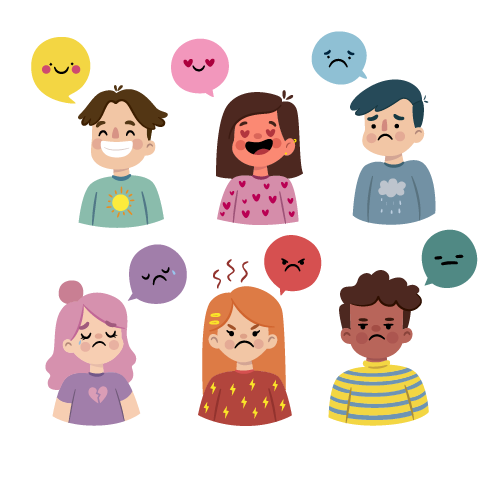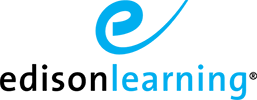The Own It!™ Youth Empowerment Course provides schools with a digital learning solution to help students develop the skills and resiliency to feel better, accomplish more, and create the life they want.
Own It ™ Course Details
Every student in our schools faces challenges. However, when students begin to learn the vital connection between their thoughts and their outcomes, they see the power they have to solve any problem and succeed in any situation.
The Own It! course addresses both the well-rounded, foundational social-emotional needs each student has, and also provides practical success strategies to foster the life skills that help students build their own future – and thrive!
Through an interactive and engaging, 10-module course, students will:
- Learn how to recognize and process their emotions
- Develop empathy and understanding
- Identify their strengths and abilities
- Use goal-setting and visualization to achieve dreams
- Learn how to apply problem solving strategies in their life
- Overcome negative self-talk and mental barriers
- Learn how to apply problem solving strategies in their life
- Discover how they learn and study best
- And much more
The Perfect SEL Solution
- in conjunction with the enrollment process.
- as advisory support curriculum.
- as a framework to support college and career readiness.
- as a first-tier intervention approach in an RTI model and as a wraparound service.
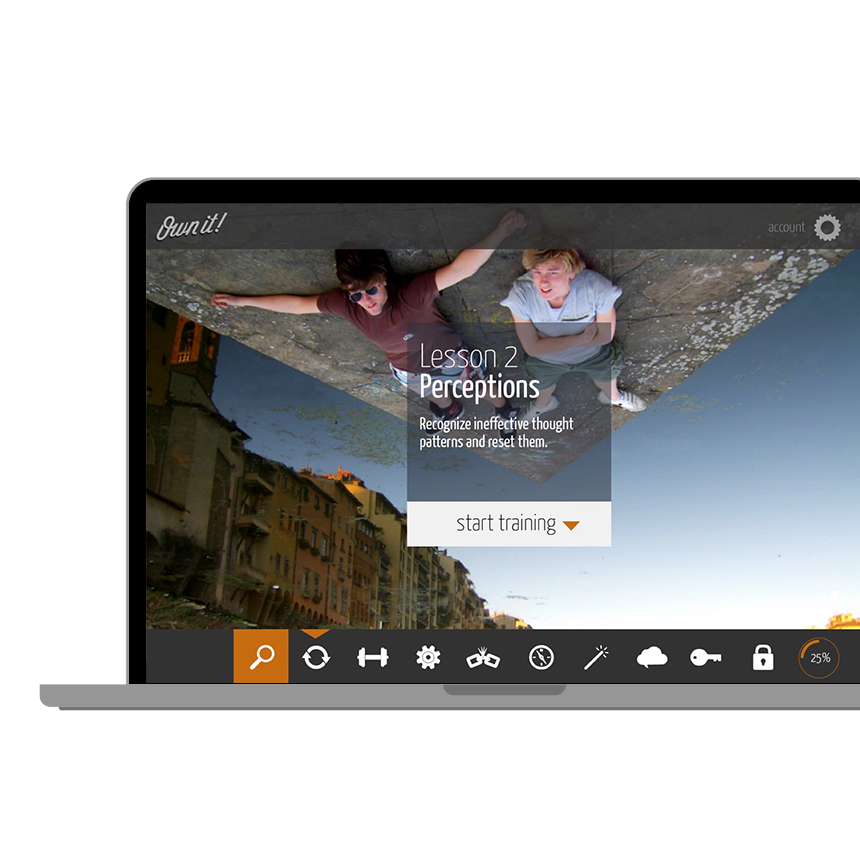
Own It ™ Alignment
- Aligned to The CASEL 5 Framework
- Aligned to the Collaborative for Academic, Social, and Emotional Learning, core SEL Competencies and the guidelines provided through ESSA
- Based upon the research of the Gates Foundation, Next Gen Tools; Carnegie Foundation and Dr. Dennis Deaton, and The Ownership Spirit
Self-Awareness
The abilities to understand one’s own emotions, thoughts, and values and how they influence behavior across contexts. This includes capacities to recognize one’s strengths and limitations with a well-grounded sense of confidence and purpose. Such as:
• Integrating personal and social identities
• Identifying personal, cultural, and linguistic assets
• Identifying one’s emotions
• Demonstrating honesty and integrity Linking feelings, values, and thoughts
• Examining prejudices and biases
• Experiencing self-efficacy Having a growth mindset
• Developing interests and a sense of purpose
Self-Management
The ability to manage one’s emotions, thoughts, and behaviors effectively in different situations and to achieve goals and aspirations. This includes the capacities to delay gratification, manage stress, and feel motivation & agency to accomplish personal/collective goals. Such as:
• Managing one’s emotions
• Identifying and using stress-management strategies
• Exhibiting self-discipline and self-motivation
• Setting personal and collective goals
• Using planning and organizational skills
• Showing the courage to take initiative
• Demonstrating personal and collective agency
Social Awareness
The abilities to understand the perspectives of and empathize with others, including those from diverse backgrounds, cultures, & contexts. This includes the capacities to feel compassion for others, understand broader historical and social norms for behavior in different settings, and recognize family, school, and community resources and supports. Such as:
• Taking others’ perspectives
• Recognizing strengths in others
• Demonstrating empathy and compassion
• Showing concern for the feelings of others
• Understanding and expressing gratitude
• Identifying diverse social norms, including unjust ones
• Recognizing situational demands and opportunities
• Understanding the influences of organizations/systems on behavior
Relationship Skills
The abilities to establish and maintain healthy and supportive relationships and to effectively navigate settings with diverse individuals and groups. This includes the capacities to communicate clearly, listen actively, cooperate, work collaboratively to problem solve and negotiate conflict constructively, navigate settings with differing social and cultural demands and opportunities, provide leadership, and seek or offer help when needed. Such as:
• Communicating effectively
• Developing positive relationships
• Demonstrating cultural competency
• Practicing teamwork and collaborative problem-solving
• Resolving conflicts constructively
• Resisting negative social pressure
• Showing leadership in groups
• Seeking or offering support and help when needed
• Standing up for the rights of others
Responsible Decision Making
The ability to make caring and constructive choices about personal behavior and social interactions across diverse situations. This includes the capacities to consider ethical standards and safety concerns and to evaluate the benefits and consequences of various actions for personal, social, and collective well-being. Such as:
• Demonstrating curiosity and open-mindedness
• Identifying solutions for personal and social problems Learning to make a reasoned judgment after analyzing information, data, facts
• Anticipating and evaluating the consequences of one’s actions
• Recognizing how critical thinking skills are useful both inside & outside of school
• Reflecting on one’s role to promote personal, family, and community well-being
• Evaluating personal, interpersonal, community, and institutional impacts
I'm Ready to Connect
to a Team Member
Own It ™ Curriculum Overview

Mind Management
- Mindfulness and self-awareness
- Connection between thoughts and outcomes
- Taking ownership and accountability
- Recognizing and resetting presets
- Overcoming negative self-talk, mental barriers, and victim thinking
- Improving thought process
- Using visioneering to achieve lofty goals
- Developing persistence and mental resilience

Emotional Intelligence
- Emotional Health and self-awareness
- Managing emotions through thought control
- Making connection and sharing feelings
- Expressing emotional needs
- Dealing with fear and uncertainty
- Showing empathy
- Gaining and giving emotional support
Course Structure
Each student builds a personalized profile report while completing the training units that help them identify their strengths, interests, learning style, career interests, and more. The course is compiled of ten interactive, video-based units in easy to use interface.
Individual Student Profiles
Interactive Modules
Students experience a range of interactive elements throughout the course
Real-life Video Scenarios
Students learn through valuable real-life situations
50,000 Student Users Surveyed
Feedback from users drives course content and profile. Course completion drives increased ROI and academic outcomes.
96 %
97 %
96 %
130 +
What students are saying?
“This course was able to open up my mind more on the way I see things and also in the way I can accomplish things.”
“I learned that I can do anything I set my mind to and I can be a more positive person.”
“The only way to be successful is to own who you are, mistakes and all.”
“If our goal is to identify and nurture individual excellence… pay attention to the distinct jaggedness of every individual.”
Dr. Todd Rose | Center for Mind, Brain, and Education at Harvard
Personal Profile Reports help teachers personalize learning for their students
- Teachers get to know their students and build relationships more quickly
- Support emotional health of students through discussions about emotions, empathy and support for feelings
- Students gain confidence and become better advocates for themselves
- Support a culture of ownership and accountability in the classroom
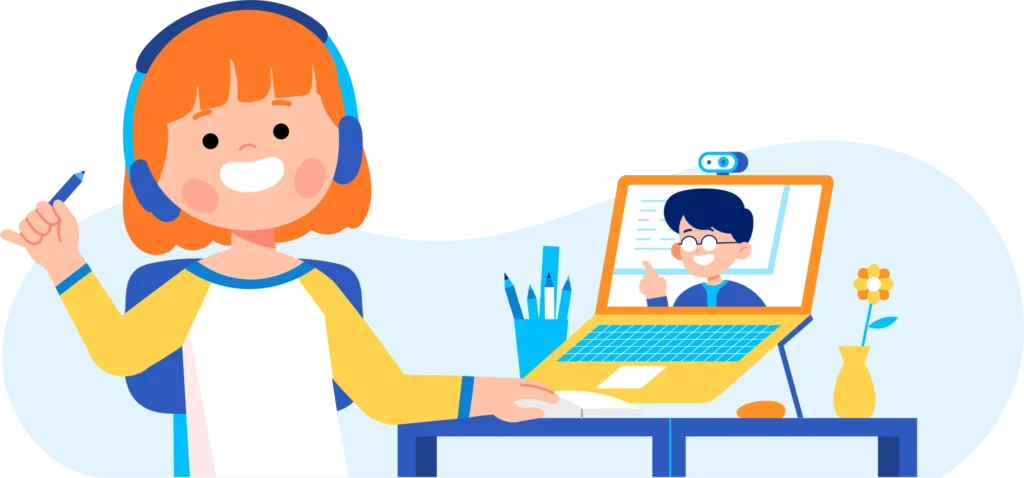
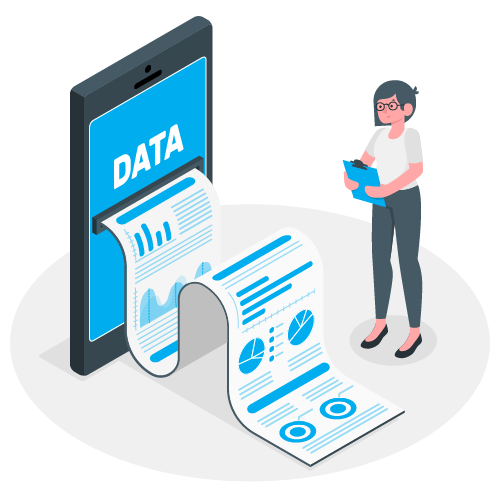
Student and Cohort Progress Tracking Data
- A culture of ownership increased ROI
- Students who completed the Mindset Training and Profile ranked higher in attendance, on-time course completion, and retention compared to baseline averages
Download the Course Catalog
